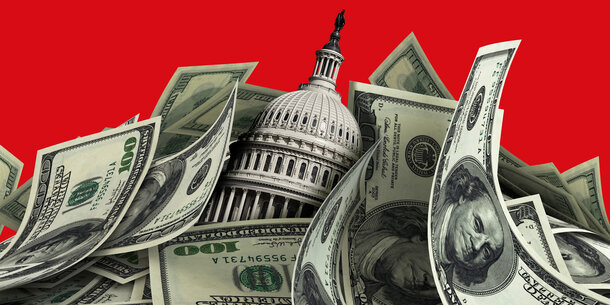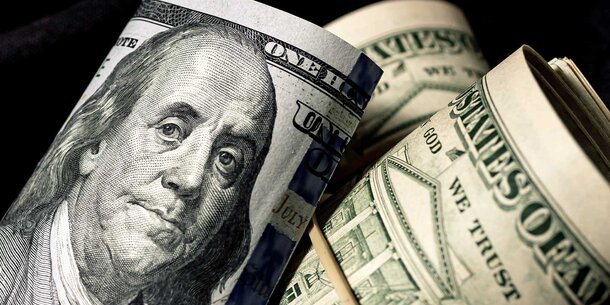In a recent blog post, law professor and election law expert Richard Pildes raised a concern about the For the People Act (H.R. 1/S. 1), the major democracy reform package moving through Congress. He notes that the campaign finance reform provisions would provide matching funds to multiply the value of small donations to candidates at a rate of six-to-one.
This program, which also dramatically lowers contribution limits for candidates who participate, would amplify the voices of regular people and allow more diverse candidates to run competitive campaigns without having to raise large amounts of money from special interests. Recent elections have shown how much it is needed — even as we’ve seen massive increases in the number of small donors in 2018 and 2020, the amount of money coming from big donors was still far greater.
Pildes’s issue, however, is “whether small donors tend to fuel the ideological extremes of the parties.” It’s an understandable question, and the evidence is that it does not.
To the contrary, we have shown that the weight of social science evidence does not support the notion that small donors are uniquely polarizing. For example, one study from 2016 finds that states with higher limits on individual contributions have more ideologically extreme legislators. The obvious takeaway is that large donors are polarizing. The study says nothing about small donors.
Big donors’ practice of injecting millions of dollars through vehicles like super PACs and dark money groups to influence elections is far more polarizing than anything small donors can accomplish. Our current campaign finance system offers plenty of examples of moneyed interests spending mountains of cash to elect hardline partisans. Several of the most expensive congressional races ever were in 2020, and megadonors to candidates and super PACs boosted strong conservatives Senate candidates like David Perdue in Georgia and Joni Ernst in Iowa. Perdue raised over $100 million, with only 23 percent coming from small donors.
Stories about corporate America pausing donations to members of Congress over the January 6 insurrection are noteworthy, but it is quite premature to expect that corporations will act as a moderating force on Congress. Indeed, prior to the insurrection, many corporations had supported candidates who seemed willing to bring us to the brink.
AT&T, for example, reportedly gave $2 million in recent years to members of Congress who later objected to the election results, and Comcast, UPS, and Deloitte gave more than $1 million each. Meanwhile, Rep. Marjorie Taylor Greene’s embrace of the Big Lie that the election was stolen has increased the loyalty of some of her biggest financial supporters. One business owner who had previously given $125,000 to a super PAC affiliated with Greene gave another $2,800 to her campaign and pledged to give more. We have every reason to believe that big money, including corporate money, will support extreme candidates in the future.
Pildes provides a list of nine representatives who raised most of their money from small donors, but the list does not show a correlation between small donors and extremism. According to DW-NOMINATE, a commonly used metric of ideology that political scientists use to show how similar legislators’ roll-call voting records are to each other, most of these nine members are closer to the ideological center than the median member of their party.
In fact, if we look at the House members at the farthest ends of the ideological spectrum, there’s no evidence that they are especially reliant on small donors. Take the 20 congresspeople at the two ideological extremes of the DW-NOMINATE ranking. With one exception, all of these 20 members are farther to either the left or right than the nine members from Pildes’s list who rely on small donors the most. All but one raised far less than half their money from small donors, and nine took less than 10 percent from such donors.
So what explains the grassroots success of the nine congresspeople who raised more than half their funds from small donors? Donations of all sizes can be driven by factors like prominence, the competitiveness of the election, and the candidate’s choices as to fundraising strategies.
The representatives who rely on small donors the most are all, to some degree, household names. Rep. Nancy Pelosi (CA) has been speaker of the House and minority leader. Middle-of-the-road Democrat Rep. Adam Schiff (CA) made a name for himself as a leader in the drive to impeach President Trump (the first time).
Sen. Josh Hawley (MO), who has made national headlines as an election denier and encourager of the capitol riot, announced an increase in donations in January that the campaign characterized as a “surge in grassroots support.” Hawley actively courted these donations, and he was helped by a supportive super PAC, the Senate Conservatives Fund, which invested almost $400,000 on texts and emails soliciting donations for Hawley.
To be sure, it is distressing that Hawley’s endorsement of the Big Lie attracted donors. But this is one of countless examples of politicians taking advantage of their prominence in a news cycle to boost fundraising. Other events that led to an increase in donations include Rep. Steve Scalise (LA) getting shot, Sen. Elizabeth Warren (MA) being scolded with “nevertheless she persisted,” and Sen. Mitt Romney (UT) voting to convict Trump in the first impeachment trial.
Another key way to attract notoriety — and lots of small donors — is something most politicians would probably rather avoid: run in a close race. The four Senate candidates who raised the most from small donors, in terms of dollar amounts, were all relative moderates in competitive races: Sens. Lindsey Graham (SC), Mark Kelly (AZ), Mitch McConnell (KY), and Martha McSally (AZ). All had massive fundraising efforts soliciting small donations.
The most important problem with the worry about polarization, though, is that it rests on the way small donations work now. The point of the profound reforms in the For the People Act is to change the way campaigns are funded. The public-funding match would make it easier for candidates to entice small donors with constituent connections and retail campaigning. The program would bring large numbers of new donors into the system, ones who could be more moderate than those who give now.
In the current broken system, a small number of megadonors spend millions to influence elections and expect something in return from the officials who benefited. Many Americans have lost interest in civic participation because they don’t have confidence in our political system. Reform can restore that confidence and make people more likely to engage with the political process, including through small donations. With public financing, politicians would have a greater incentive to seek broad support from all of their constituents, not just the rich ones.



